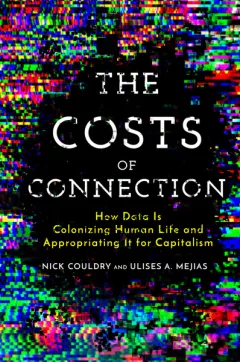
Nick Couldry is a sociologist of media and culture. He is Professor of Media Communications and Social Theory at the London School of Economics and Political Science, and from 2017 has been a Faculty Associate at Harvard’s Berkman Klein Center for Internet and Society.
He is the co-founder with Paola Ricaurte and Ulises Mejias of the website www.tierracomun.net which supports dialogue with/among Latin American scholars and activists about data colonialism. He jointly led, with Clemencia Rodriguez, the chapter on media and communications in the 22 chapter 2018 report of the International Panel on Social Progress: www.ipsp.org. He is the author or editor of fifteen books including The Mediated Construction of Reality (with Andreas Hepp, Polity, 2016), Media, Society, World: Social Theory and Digital Media Practice (Polity 2012) and Why Voice Matters (Sage 2010). His latest books are The Costs of Connection (with Ulises Mejias, Stanford UP, 2019), Media: Why It Matters (Polity, 2019) and Media, Voice, Space and Power (Routledge, 2020).








